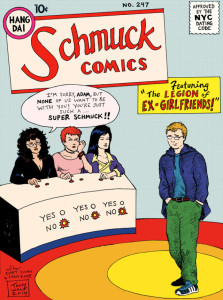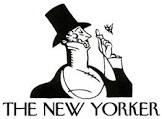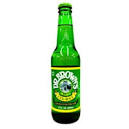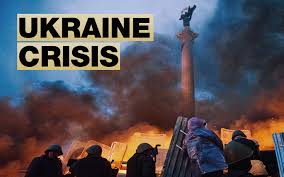 Sarah got up and put her clothes back on. “Got a big day tomorrow – you don’t mind if I call a cab and head home?” Van was actually relieved. The memory of seeing Catherine quietly put down the grocery bags and leave was still vivid in his mind. Sarah gave him a quick peck and picked up her cell to summon the cab. Within five minutes, he heard the honk downstairs. She emerged from the bathroom, blew him a kiss and left. Van got up and fell onto his bed.
Sarah got up and put her clothes back on. “Got a big day tomorrow – you don’t mind if I call a cab and head home?” Van was actually relieved. The memory of seeing Catherine quietly put down the grocery bags and leave was still vivid in his mind. Sarah gave him a quick peck and picked up her cell to summon the cab. Within five minutes, he heard the honk downstairs. She emerged from the bathroom, blew him a kiss and left. Van got up and fell onto his bed.
But his sleep that night was restless and uneasy. He kept seeing Catherine’s face, and the look of hurt his coupling with Sarah brought to her. He thought to himself, “Catherine didn’t deserve that. I wish I hadn’t given her that key.” He decided to wait a few days – to let her calm down about this gaffe – and then he’d call her and invite her to lunch.
Three days later, he still felt awkward about calling her. “Geez, sometimes I can be a real  shmuck,” Van said out loud as he walked from the subway station to The Broadway Cafe. As he walked in the door, he was greeted by the wait staff and counter man. “Hey, Van! Welcome, welcome! Good to see ya. Grab a table, man – coffee’s comin’!”
shmuck,” Van said out loud as he walked from the subway station to The Broadway Cafe. As he walked in the door, he was greeted by the wait staff and counter man. “Hey, Van! Welcome, welcome! Good to see ya. Grab a table, man – coffee’s comin’!”
The last time he’d had breakfast here, they’d referred to him as “That Guy that Brought Kitty back to life”. At first, he enjoyed all the attention. Writers that barely spoke to him before now asked him to read their stuff before they submitted it to Melissa. Of course most of it was way better than his normal production, but he felt obliged to critique and suggest alternative choices of words and paragraph structure. His new celebrity came from producing one piece on one hot topic. Big deal. His input was valued just because he’d won the most prestigious prize in journalism.
More and more, he felt let down by this new-found notoriety. “I guess being semi-famous isn’t all it’s cracked up to be. I still feel like there’s something missing in life, something that I can’t quite define. Maybe I need a change – maybe I’ll treat myself to another vacation.” But the thought of going anywhere without Catherine made him sad and then ashamed of what he’d done. Naturally he hadn’t heard from Sarah since that fateful evening three nights ago. He kept thinking he’d call Catherine, but just couldn’t bring himself to do it. He felt ashamed, not only about being naked on the couch with Sarah, but also for not recognizing how much she’d contributed to the article. “So I’m a cheat, a fraud and a user – great combination of attributes,” he thought. Leaving the cafe, he pulled his cell from his pocket and made an appointment with his therapist. “Maybe she can help get me out of this funk. I’ll go talk with her about all this tomorrow.”
Van entered the apartment, and pushed the button on his  telephone answering machine that showed two messages. One was from his mother, reminding him that she was expecting his visit next month. The other was from a female whose name he didn’t quite catch, asking him to telephone David Remnick, the Editor of
telephone answering machine that showed two messages. One was from his mother, reminding him that she was expecting his visit next month. The other was from a female whose name he didn’t quite catch, asking him to telephone David Remnick, the Editor of  The New Yorker. She left the telephone number and said Mr. Remnick would be in all afternoon if he cared to return the call. ‘Whoa Ho! This is it! Just as Chris had predicted – job offers were going to pour in, the first of which was from The New Yorker.” Van felt his heart thump in his chest.
The New Yorker. She left the telephone number and said Mr. Remnick would be in all afternoon if he cared to return the call. ‘Whoa Ho! This is it! Just as Chris had predicted – job offers were going to pour in, the first of which was from The New Yorker.” Van felt his heart thump in his chest.  “Opportunity Knocks and I’m ready to open the door.”
“Opportunity Knocks and I’m ready to open the door.”
Van waited another hour, and then tried to remain calm as he returned the call. The secretary put him through to Remnick, who greeted him in a booming, New Jersey accented voice. David congratulated Van on his Pulitzer, saying how badly The New Yorker had been scooped with Van’s pavement-pounding journalism, and how much he’d personally enjoyed reading the article. Van thanked him for his kind words, particularly coming from someone who’d also won the prize for a book. Van recalled Remnick had written a Pulitzer-winning piece of non-fiction, but its subject currently eluded him at the moment. They engaged in small talk about other elements of their respective magazines. Then Remnick got down to the business of the call.
“The reason I’m calling, Van – can I call you Van? Oh great…the reason I’m calling is to invite you over to our place just to have a chat – maybe about some opportunities in your future with a magazine that has 20 times the circulation of the one you currently call home?” Van said he’d be happy to discuss opportunities with him, and they agreed to meet on Tuesday of the following week at 11. Van thought, “Hmm..11 am – maybe he’ll take me to lunch – that’d be cool.”
The next morning, Van practically skipped to his  therapist appointment. He hadn’t seen Nancy since before the award ceremony, and, of course, since his invitation to come talk about working at the most prestigious magazine – likely in the world. He entered her office, and she was waiting for him at the inner door. “Come on in, Van – my you look happy today. That’s so nice to see.” Van nodded, and took a seat in the chair across from hers. “I’ve had a great week and a half, Nancy.” Van then went on to tell Nancy everything that had transpired in his life – except the part about Catherine walking in on Sarah and him. He didn’t want to spoil his good mood by having Nancy pull a ‘Maida’ on him and chastise his inappropriate behavior. Nancy listened thoughtfully to everything he had to say. When he was finished, she nodded appreciatively. “Well, as I told you before, I knew you had it in you. And it’s good to see you’ve begun to use some of that talent you’ve hidden so well these last few years. Congratulations are clearly in order.”
therapist appointment. He hadn’t seen Nancy since before the award ceremony, and, of course, since his invitation to come talk about working at the most prestigious magazine – likely in the world. He entered her office, and she was waiting for him at the inner door. “Come on in, Van – my you look happy today. That’s so nice to see.” Van nodded, and took a seat in the chair across from hers. “I’ve had a great week and a half, Nancy.” Van then went on to tell Nancy everything that had transpired in his life – except the part about Catherine walking in on Sarah and him. He didn’t want to spoil his good mood by having Nancy pull a ‘Maida’ on him and chastise his inappropriate behavior. Nancy listened thoughtfully to everything he had to say. When he was finished, she nodded appreciatively. “Well, as I told you before, I knew you had it in you. And it’s good to see you’ve begun to use some of that talent you’ve hidden so well these last few years. Congratulations are clearly in order.”
They continued with their conversation, Van explaining about being invited to potentially work for The New Yorker. Nancy asked, “Is that something that might interest you, or do you think you’d rather stick with The New Republic?” Van snorted so loud, he had a coughing fit, requiring Nancy to fetch him a cup of water from the  water cooler in the outside portion of the office. Van spluttered after taking a sip, “Are you joking? Turn down The New Yorker to stay with that two-bit mag TNR? No way – no way in hell. I’m outa there!” Nancy replied, “Well, it’s good to see you so positive, both in your attitude and with your career. So, with all that going on, was there something else you wanted to talk with me about? When you called yesterday, you seemed a little upset about something.” Van replied, “No – I’m just fine – in fact, I’m just great. Everything is wonderful. I may even go visit my mother next month.” Nancy nodded, only saying, “Good – good.” With a few other pleasantries, their half-hour session and Van handed Nancy a check for all the arrears for his therapy – thanks to the ten thousand dollar prize money from Pulitzer. Nancy accepted the check, and asked if he wanted to make another appointment. Van said, “I’ll call you – maybe in another two weeks.”
water cooler in the outside portion of the office. Van spluttered after taking a sip, “Are you joking? Turn down The New Yorker to stay with that two-bit mag TNR? No way – no way in hell. I’m outa there!” Nancy replied, “Well, it’s good to see you so positive, both in your attitude and with your career. So, with all that going on, was there something else you wanted to talk with me about? When you called yesterday, you seemed a little upset about something.” Van replied, “No – I’m just fine – in fact, I’m just great. Everything is wonderful. I may even go visit my mother next month.” Nancy nodded, only saying, “Good – good.” With a few other pleasantries, their half-hour session and Van handed Nancy a check for all the arrears for his therapy – thanks to the ten thousand dollar prize money from Pulitzer. Nancy accepted the check, and asked if he wanted to make another appointment. Van said, “I’ll call you – maybe in another two weeks.”
The weekend dragged by slowly, with Van only minimally paying attention to anything other than thinking through what opportunities lie in store for him with the new magazine. Finally, Tuesday at 10:50 Van walked into  The New Yorker office on 8th Avenue. He was directed upstairs to the editor’s office, where the same secretary that had left the message ushered him into Remnick’s office.
The New Yorker office on 8th Avenue. He was directed upstairs to the editor’s office, where the same secretary that had left the message ushered him into Remnick’s office.
The editor acted effusively happy to see Van, showing him around the offices, pointing out various writer’s offices along the way. Remnick introduced Van to  Hendrik Hertzberg, another alumnus of The New Republic, and Remnick’s protege. Hertzberg told him how much he enjoyed reading the Kitty article, and said he thought Van had done an exceptionally good piece of journalism in its creation. Van thanked him for his kind words, and left it at that, since he had read nothing that Hertzberg had ever written. After the tour, David said, “I’ve taken the liberty of having some lunch brought it – is that OK? Just some sandwiches and coffee.”
Hendrik Hertzberg, another alumnus of The New Republic, and Remnick’s protege. Hertzberg told him how much he enjoyed reading the Kitty article, and said he thought Van had done an exceptionally good piece of journalism in its creation. Van thanked him for his kind words, and left it at that, since he had read nothing that Hertzberg had ever written. After the tour, David said, “I’ve taken the liberty of having some lunch brought it – is that OK? Just some sandwiches and coffee.”
They returned to Remnick’s office, and a  gourmet spread was laid out on the table in the corner. Van selected a reuben sandwich, and a bottle of
gourmet spread was laid out on the table in the corner. Van selected a reuben sandwich, and a bottle of  Dr. Brown’s Cel Ray soda. Remnick had some coffee and a yoghurt, wiping his lands on the linen napkins laid out next to the sandwich plate. They talked about current politics and Van tried to sound as though he knew anything at all about the situation in Gaza or about ISIS/ISIL/IS – the terror group currently in vogue in Iraq and Syria. Remnick seemed not to notice Van’s ignorance, as he seemed to enjoy the sound of his own voice more than he cared to hear Van’s opinion about anything.
Dr. Brown’s Cel Ray soda. Remnick had some coffee and a yoghurt, wiping his lands on the linen napkins laid out next to the sandwich plate. They talked about current politics and Van tried to sound as though he knew anything at all about the situation in Gaza or about ISIS/ISIL/IS – the terror group currently in vogue in Iraq and Syria. Remnick seemed not to notice Van’s ignorance, as he seemed to enjoy the sound of his own voice more than he cared to hear Van’s opinion about anything.
With lunch concluded, Van looked at David expectantly. David smiled, and said, “So – let’s talk about opportunities. We currently have an opening for which I believe you would be perfect. As you are aware, the situation in Ukraine just does not seem to slow down. So many journalists are afraid to go back to Iraq and certainly won’t go to Syria because of those beheadings you likely saw on television. But I believe  Ukraine is going to be making news soon, as Vladimir Putin makes his move to consolidate his hold on that country. And we’d like for you to represent us in that area of the world. Your ability to get people to tell you things they’ve not shared with anyone else would be ideal there, as there is a general mistrust of westerners. Of course we’d provide you with an interpreter and a driver to assist you – both locals that we have on contract. What do you say?” Remnick’s face was beaming. Van was collapsing inside. “Ukraine? Ukraine? Russia? Are you fuckin’ crazy?” he thought to himself. “That’s a very interesting offer, David – may I call you David? Oh, great – yes, an interesting offer indeed. Could I have a few days to think it over?” Van thought to himself, “A few days to think over how to get a different assignment here, maybe – but certainly not go to anywhere as dangerous as Ukraine.”
Ukraine is going to be making news soon, as Vladimir Putin makes his move to consolidate his hold on that country. And we’d like for you to represent us in that area of the world. Your ability to get people to tell you things they’ve not shared with anyone else would be ideal there, as there is a general mistrust of westerners. Of course we’d provide you with an interpreter and a driver to assist you – both locals that we have on contract. What do you say?” Remnick’s face was beaming. Van was collapsing inside. “Ukraine? Ukraine? Russia? Are you fuckin’ crazy?” he thought to himself. “That’s a very interesting offer, David – may I call you David? Oh, great – yes, an interesting offer indeed. Could I have a few days to think it over?” Van thought to himself, “A few days to think over how to get a different assignment here, maybe – but certainly not go to anywhere as dangerous as Ukraine.”
David just seemed so enchanted with getting Van to go to Ukraine, he couldn’t seem to stop talking about it. He went over to his desk, and pulled a 3×5 index card from a leather holder, his name and  The New Yorker logo on the top. He wrote down a name, address and telephone number, and handed it to Van. “Here’s a guy you need to speak with before you decide whether or not to take the gig. He’s Dexter Filkins – wrote for The Times in Iraq for a few years, and then Afghanistan? He can tell you how exciting it can be to be a war correspondent. Just think – joining the ranks of
The New Yorker logo on the top. He wrote down a name, address and telephone number, and handed it to Van. “Here’s a guy you need to speak with before you decide whether or not to take the gig. He’s Dexter Filkins – wrote for The Times in Iraq for a few years, and then Afghanistan? He can tell you how exciting it can be to be a war correspondent. Just think – joining the ranks of  Ernest Hemingway, Ernie Pyle and even
Ernest Hemingway, Ernie Pyle and even  Leo Tolstoy covered the Crimean War in the mid 1850’s. Too, too exciting. Wish I could go there myself.”
Leo Tolstoy covered the Crimean War in the mid 1850’s. Too, too exciting. Wish I could go there myself.”
Van thanked him for the lunch, and said he’d certainly give Dexter a call. He left, and took a cab home. On the way home, he kept visualizing himself in that war-torn part of the world, with bullets whizzing around him and the sight of  dead bodies and burned-out buildings. He decided he’d find a way to convince Remnick that his talents lay elsewhere than war reporting – that he had asthma and the air in Ukraine was notoriously bad for asthmatics. But he slipped the 3×5 card in his inside jacket pocket and decided to go see Filkins – why not? Maybe he could help him figure out how to not go to the circle of hell known as Donetsk, Ukraine.
dead bodies and burned-out buildings. He decided he’d find a way to convince Remnick that his talents lay elsewhere than war reporting – that he had asthma and the air in Ukraine was notoriously bad for asthmatics. But he slipped the 3×5 card in his inside jacket pocket and decided to go see Filkins – why not? Maybe he could help him figure out how to not go to the circle of hell known as Donetsk, Ukraine.
